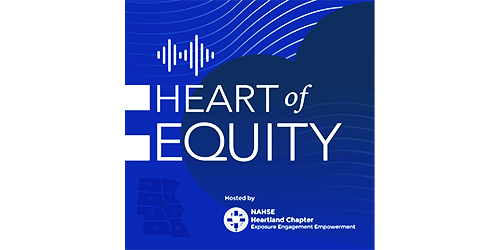Perspective-Taking that engages.
Experience Virtual Reality training that works.
reported that the Equity Commons Virtual Reality training helped them understand patients’ perspectives and could articulate a clearer plan for their own improvement.
MedStar Georgetown University Hospital
indicated that after they experienced the Equity Commons Virtual Reality training, they had a clearer understanding and planned to do things differently.
Kimpton Hotels
noted that with their new understanding gained from the Equity Commons Virtual Reality module, they intended to change behaviors.
American College of Cardiology
Schedule a consultation
Hands-On experiences that drive growth.
Learn more
1 / 6
79% of participants strongly agreed that working to reduce their own implicit bias could help them be more effective professionally.
This post-survey figure showed a nearly 14% percent increase from the pre-survey given just before the Virtual Reality simulation.
145 Participants immersed in the experience of a transgender patient at the doctor’s office.
American College of Cardiology Case Study
Hands-On experiences that drive growth.
Learn more
2 / 6
88% of respondents thought the experience was an enlightening tool for understanding patients’ challenges.
100% indicated that they would do something differently based on their understanding after the Equity Commons Virtual Reality training.
Participants immersed in the experience of a patient going to the hospital because of chest pain.
MedStar Georgetown University Hospital Case Study
Learn more
3 / 6
From the pre-survey to post-survey, respondents who indicated they were willing to do something differently increased from 67% to 78%, a 16% increase.
33% of respondents feel more confident in their ability to prevent or respond to implicit bias.
Participants immersed in the experience of an LGBTQ+ student.
Higher Education Case Study
Learn more
4 / 6
66% of post-survey respondents rated Equity Commons Virtual Reality training better than previous training they experienced on the same topics.
Over 90% of those who received previous training on the same topics continue to take action four weeks post training, indicating even greater impact.
339 Participants immersed in a variety of scenarios.
Large Event Case Study
Learn more
5 / 6
Before the experience, only 19% of participants noted thinking about implicit bias more than 3 times during a typical work week.
After the experience, 63% of participants indicated considering implicit bias more than 3 times during the week - a more than 3x increase.
Participants immersed in the experience of a woman going to the hospital because of chest pain.
Multinational Case Study
Learn more
6 / 6
74% of post-survey respondents rated Equity Commons Virtual Reality training better than previous trainings they experienced.
From the pre-survey to post-survey, respondents who indicated that the topics covered in the training were a significant problem in the workplace increased from 37% to 52%, a 41% increase.
64 Participants immersed in the experience of a patient going to the hospital.
Tech Conference Case Study
American College of Cardiology Case Study
close case study
MedStar Georgetown University Hospital Case Study
close case study
Higher Education
Case Study
close case study
Large Event
Case Study
close case study
Multinational
Case Study
close case study
Tech Conference
Case Study
close case study
learn more
Learn how he champions #empathy for better patient outcomes.
Dr. Aubrey J. Grant, Chief Medical Officer, shares his journey in medicine on STEM PLUG™ Podcast.
learn more
Join us at the “Inclusive Futures: Belonging in Higher Education and Beyond” conference.
Equity Commons is excited to partner with the University of Virginia.
learn more
Learn the power of VR and why data-driven testing is key in today's dynamic landscape.
Equity Commons CEO Whitney A. White shares crucial insights on business leadership in a ValiantCEO feature.
Key News & Updates
Led by leaders who accelerate innovation.
close
close








